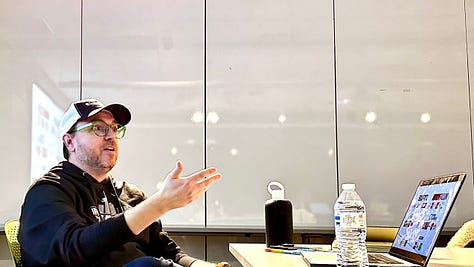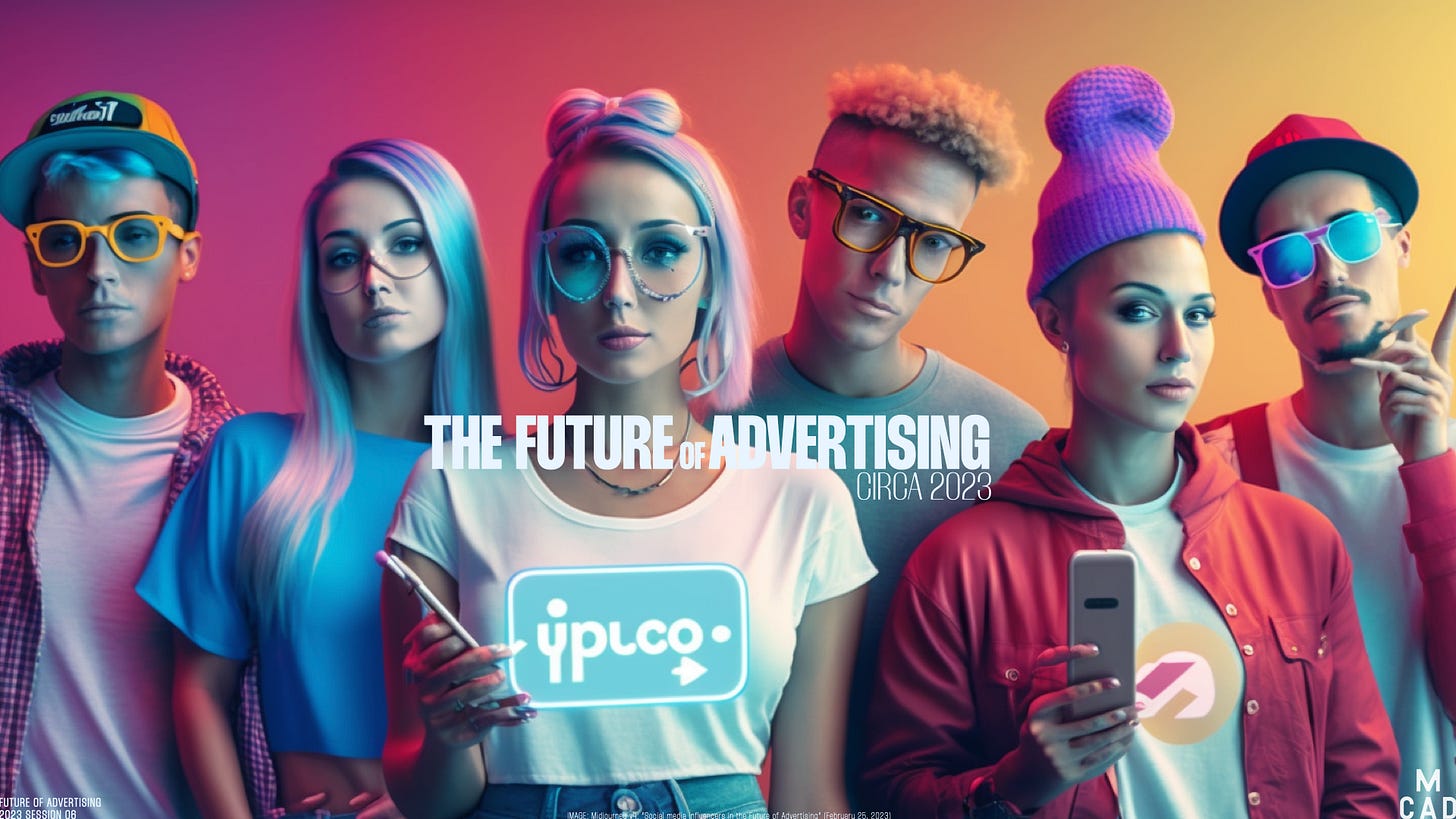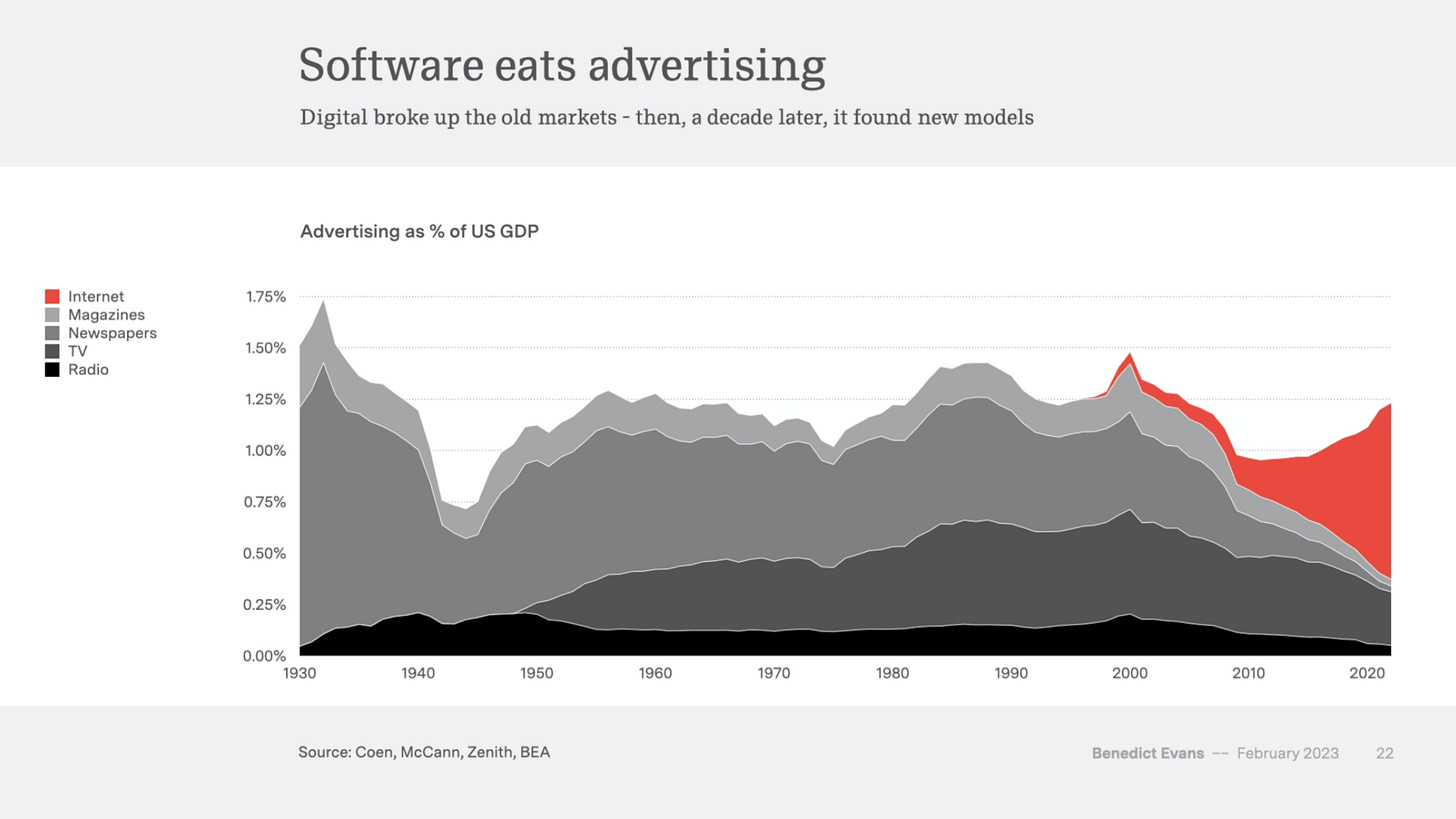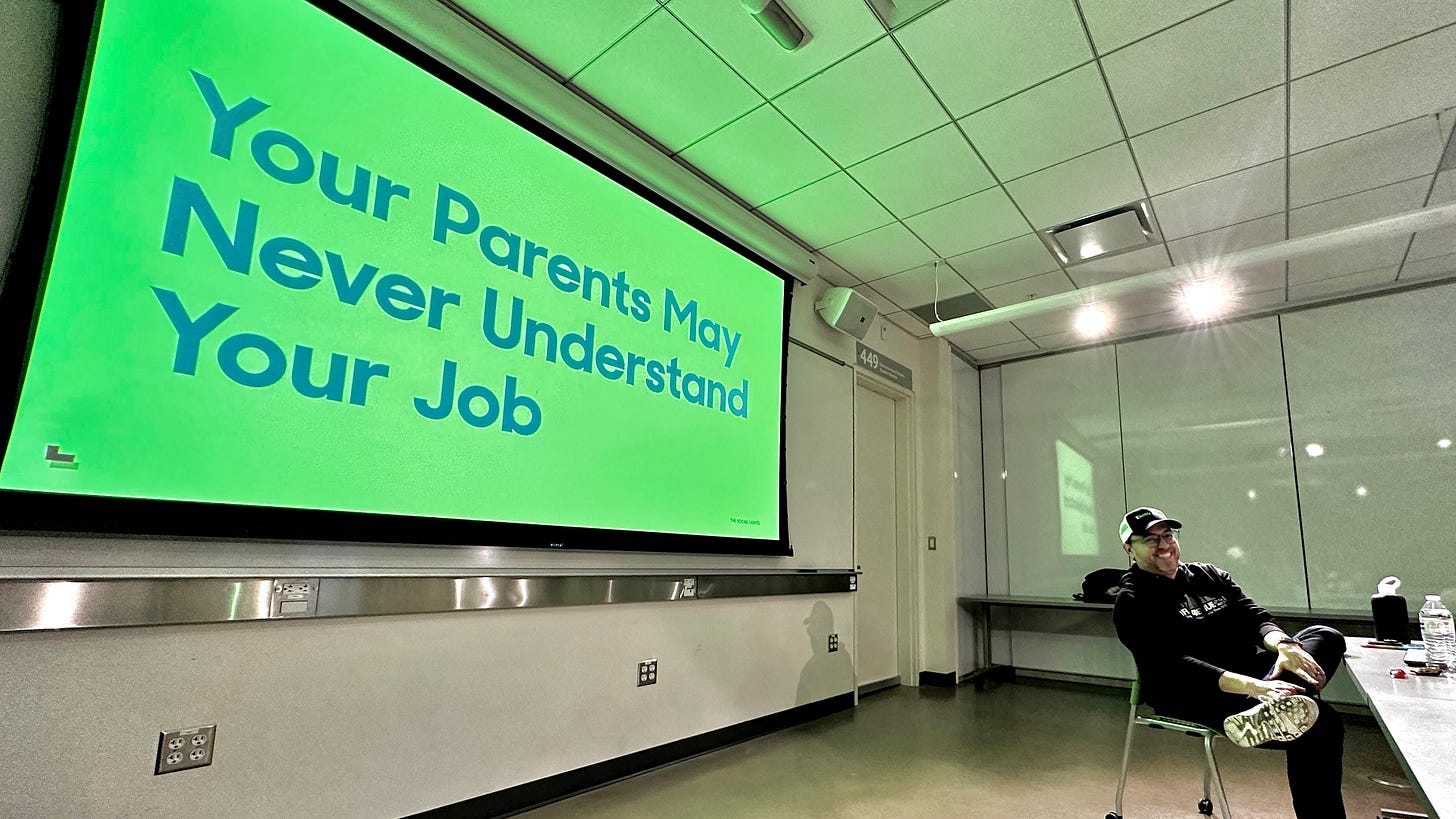019: Social Media is just getting started, amidst a memory of simpler times
[During - Session 6] Why does everything keep changing and can Greg Swan please save us?
Prompt: “Social media influencers in the future of advertising” via Midjourney v4 (Feb 25, 2023). The fingers are just the beginning.
It was the word “architect” that people struggled with. The year was 1998, and we were posting our first job opening for an Information Architect, because, you know, websites! But, was this really a role you had inside a modern, 800-person advertising agency?
Jump forward to 2006. I’m sitting across from an agency CFO who can’t find a distinction between a Copywriter and an Interactive Copywriter in the 4A’s reference book. How will we proceed?
And yet, we did. And we will, again.
Social Media feels like an ancient 15 year old
We are just now formalizing habits, culture, standards, process and case studies for what is essentially an entirely new way to conceive of marketing. First the Internet arrived. But then social quickly demanded an even fresher evaluation. Pivotal moments arrive and you make of them what you can. No wonder “marketing today is confused,” note the
.Tonight’s class began by confronting a current reality: It’s too easy to mistake your own fluency and comfort for general acceptance and understanding. Hence the confusion.
On the one hand, everyone knows this:
But that doesn’t mean systems and preferences within agencies and marketing organizations have changed as dramatically. Meanwhile, I’ve got students who were born into social, who are native speakers; who know a very different set of rituals and cultures and technologies. Why should they accept old habits based on dead media?
I found this sentiment from
's Ryan Broderick useful (bolding mine):“I think we’re about to find out exactly what ‘the creator economy’ is. During the years leading up to the pandemic, the idea of an ‘internet creator’ was all tangled up with the idea of an ‘influencer.’ ‘Influencer’ has all kinds of complex negative connotations to it relating to our understandings of class, but also gender. It was a cohort of internet users, mainly women or queer people, who were making large sums of money thanks to internet attention. And culture at large sort of hated them for it and, by extension, sort of also hated anyone making money from internet content. But during the pandemic and thanks to new platforms like TikTok, most businesses at this point are also digital media companies and, conversely, most people who make internet content are businesses. Add in the slow-motion destruction of Twitter, one of the last big spaces for carefree frictionless shitposting, you end up with an internet landscape that’s a lot more conducive to what I’ll call 'professional posting.’ Which is both good and bad. The upside is that people can, in theory, make money making content which they, again, in theory, love. The downside is that there are fewer spaces than ever for weird maniacs to goof around.”
Mash it up with this slide from Benedict Evans. Note the tipping point just before 2020.
…And I can summarize three key points about where we’re at now with social media, and where we are heading short term:
1. What we call Social Media is really just getting started.
Ignore the hype, and focus on roles, teams, process and metrics we’ve come to rely upon. There’s a solid foundation now, and plenty of talent who know what they’re doing at scale. Time to see how social can truly drive marketing forward.
2. “Most businesses at this point are also digital media companies,” clarifies a profound shift
The business, the brand, is no longer just manufacturing, or retailing, or providing a service—you are also now a digital media company with attendant opportunities and responsibilities. Are you acting like one?
3. The individual social brand is a real economic thing, so how do we reach people?
(I mean, not this newsletter. But thanks to the handful who have made pledges!) An example: Cocomelon’s “Bath Song” achieves 106 millions views—the record set for Most Watched Episodic TV Show (the 1983 season finale to M*A*S*H)—basically every 32 days. Then over and over. And they’re just one of thousands of successful creators. Where do marketers place their ad bets, or seek partnerships in this diverse and expanding scenario?
Solid fundamentals can’t hurt.
A huge thanks to my good friend Greg Swan who came by tonight to tell us about his favorite place—the future. Greg illuminated the entire world of social media, answered all our questions, talked about salaries and gave tips on how to get hired. (If you haven’t subscribed to
you definitely should. I read every issue.)


I’ll be back in your inbox Wednesday with an “after” reflection.









